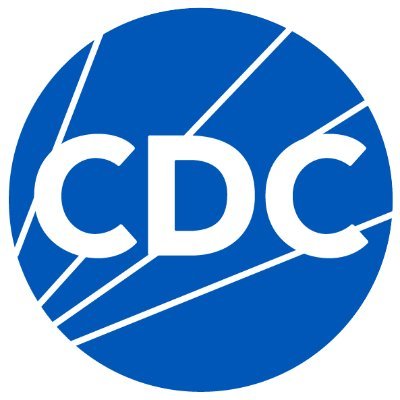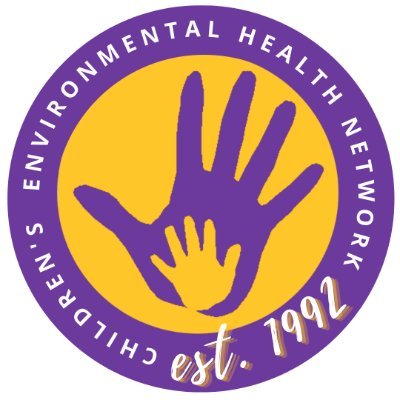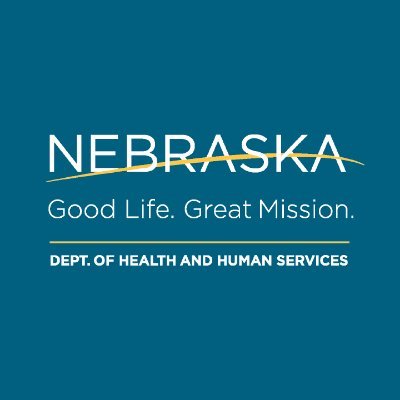#trackingchat search results
A4: While anyone can have a cold-related illness or injury, cold weather disproportionately impacts unhoused populations. The NH Tracking Program is working w/ the Bureau of Homeless Services to provide information informed by hospital visits and weather conditions. #TrackingChat

A7: Want to help prevent childhood lead exposure? Track adults! NH Tracking Program collaborates with the Lead Poisoning Prevention Program to report on adult exposures, provide information about take-home lead from the job, and improve child-adult data linkage. #TrackingChat

A3: The NH Tracking Program’s favorite feature is the query tool in the Data Explorer. It enables us to assess NH housing stock age at the county level, identify counties with higher risk potential for childhood lead poisoning, and provide targeted outreach. #TrackingChat

A1: Hello from the NH Tracking Program! We are excited to participate in Tracking Awareness Week. You can learn about our program at: dhhs.nh.gov/programs-servi… #TrackingChat

Q2: How have you or your organization leveraged innovative data visualization techniques or tools to communicate environmental health information effectively? Share examples! #TrackingChat

A8: Where you work and what you do affects your health! The NH Tracking Program supports programs in improving their collection and analysis of industry and occupation data. dhhs.nh.gov/sites/g/files/… #TrackingChat

A2: NH EPHT has created a well water dashboard using 15 years of well testing data displaying test results of naturally occurring contaminants commonly found in NH groundwater. View well water data: wisdom.dhhs.nh.gov/wisdom/topics.… #TrackingChat

The Tracking Awareness Week TWITTER CHAT 🗣️ is at 2pm ET (11am Arizona time) on Thursday, July 20. #TrackingChat #StayTuned as we join the conversation! 🤝

Thank you so much for participating in the Tracking Awareness Week #TwitterChat & being part of the Tracking Network community! Please share any other environmental health data tools, resources, successes or opportunities that you think would benefit the community! #TrackingChat
A6: CDC Tracking Program’s tools help change policy. See Emma’s story: bit.ly/FacesofTracking #TrackingChat
A3: Concerned about #wildfire smoke in your area? Use the wildfire smoke overlay on CDC Tracking Program’s Data Explorer to see the predicted movement of wildfire smoke based on wind patterns and other factors: bit.ly/44frSEG #TrackingChat
Q3: Tracking’s Data Explorer has many innovative features! What is your favorite Data Explorer feature, and why? How have you used it to gain insights or support decision-making? #TrackingChat

A6: CDC Tracking Program’s tools help families make informed choices. See Meghan’s story: bit.ly/FacesofTracking #TrackingChat
A6: CDC Tracking Program’s tools help inform emergency response work. See Darren’s story: bit.ly/FacesofTracking #TrackingChat
Q7: Strong partnerships are essential to the Tracking Network! What partners or organizations have you worked with (or want to work with!) to address environmental health issues? #TrackingChat

We’re in for #TrackingChat! Join us Thursday, July 20 at 2 PM ET to chat about #DataforAction! We'll share innovative data tools, partnerships, and resources that support health equity and can help improve #publichealth! 👉🏽Join us: bit.ly/43bxSxs

Q8: What aspect of data modernization are you most excited about (such as more real-time data, faster processing, and more tools to explore and analyze data)? How do you envision it benefiting your work or the field of environmental health? #TrackingChat

A2a We have used state level #CEH indicator (CEHI) data to put together state profiles for the states of AZ, CO, FL, CA, MN, MI, & NC. These state profiles have been crucial to providing a deeper understanding of children's environmental health at the state level. #TrackingChat

Q2: How have you or your organization leveraged innovative data visualization techniques or tools to communicate environmental health information effectively? Share examples! #TrackingChat

Q6: How have you or your organization used Tracking’s data to influence decision-making and health interventions? Share examples! #TrackingChat

Q4: We can support environmental justice by involving all people in making decisions about the environment and our health. Why are accessible data important for environmental justice? How have you used such tools to advocate for health equity in your community? #TrackingChat

Thanks for another great #Trackingchat! 🤓
A7c: We're honored to work with @NYUCPED @AspireOsu @USCEnviroHealth @CenterBreathe @EmoryNursing and @CEH_Philly! #Trackingchat
A7b Center researchers translate children's env health research findings into tools, strategies & interventions to be used/adapted by those working to #ProtectKidsHealth: healthcare practitioners, policymakers, child care providers, community leaders, and families. #Trackingchat
A7: We're proud to be the Coordinating Center for the new @NIEHS Collaborative Centers in Children’s Environmental Health Research & Translation (CEHRT) Network! cehrt.cehn.org #Trackingchat
Q7: Strong partnerships are essential to the Tracking Network! What partners or organizations have you worked with (or want to work with!) to address environmental health issues? #TrackingChat

Yes! We're working to get even more real-time data. Have you checked out the Heat & Health Tracker lately? We have real-time heat-related illness data - and we know that #extremeheat can especially impact children! ephtracking.cdc.gov/Applications/h… #TrackingChat

A8: We're excited about realtime mapping! It's such a helpful tool in communicating the science of children's environmental health! #Trackingchat
A8: We're excited about realtime mapping! It's such a helpful tool in communicating the science of children's environmental health! #Trackingchat
Q8: What aspect of data modernization are you most excited about (such as more real-time data, faster processing, and more tools to explore and analyze data)? How do you envision it benefiting your work or the field of environmental health? #TrackingChat

A8: @NASAGoddard and CDC’s Tracking Program are building data pipelines to bring real-time environmental hazard data from NASA into the Data Explorer! #TrackingChat

All of the data on CDC's Data Explorer is #OpenData and can be accessed by an API! We use our own API to power tools such as the #EnvironmentalJustice Dashboard and Heat & Health Tracker. #TrackingChat
A8: CDC’s Application Program Interface (#API) is used by developers and innovators to create applications using data from the Tracking Network! bit.ly/43thyYW #TrackingChat

Thank you so much for participating in the Tracking Awareness Week #TwitterChat & being part of the Tracking Network community! Please share any other environmental health data tools, resources, successes or opportunities that you think would benefit the community! #TrackingChat
Yes! Data at levels like census tract or other sub-county (smaller than county level) are so important to see neighborhood trends - and can better estimate health disparities and areas that need more #publichealth resources! #TrackingChat
We're excited about finer resolution health data!! Neighborhood-level exposures have a demonstrated impact on people's health and knowing where people live is a crucial step in understanding and characterizing that relationship. #TrackingChat #DataforAction
A8: CDC’s Application Program Interface (#API) is used by developers and innovators to create applications using data from the Tracking Network! bit.ly/43thyYW #TrackingChat

A8: CDC’s Tracking Program and the Water, Food, and Environmental Health Services Branch are working together to enhance and expand environmental health #DataModernization efforts across the country: bit.ly/EHDataMod #TrackingChat

We're excited about finer resolution health data!! Neighborhood-level exposures have a demonstrated impact on people's health and knowing where people live is a crucial step in understanding and characterizing that relationship. #TrackingChat #DataforAction
Q8: What aspect of data modernization are you most excited about (such as more real-time data, faster processing, and more tools to explore and analyze data)? How do you envision it benefiting your work or the field of environmental health? #TrackingChat

A8: Where you work and what you do affects your health! The NH Tracking Program supports programs in improving their collection and analysis of industry and occupation data. dhhs.nh.gov/sites/g/files/… #TrackingChat

A8: Sharing is caring! CDC’s Tracking Program has developed a Methods Warehouse to share code, data methods, R packages, and more #DataModernization tools: bit.ly/MethodsWarehou… #TrackingChat

Last week we held our 32nd Advisory Group meeting! This group is made up of environmental health leaders across sectors - from community to governmental to academic orgs. They provide essential input into our work and identify gaps where we can use #DataForAction 🤝 #TrackingChat

Q7: Strong partnerships are essential to the Tracking Network! What partners or organizations have you worked with (or want to work with!) to address environmental health issues? #TrackingChat

Q8: What aspect of data modernization are you most excited about (such as more real-time data, faster processing, and more tools to explore and analyze data)? How do you envision it benefiting your work or the field of environmental health? #TrackingChat

A7: CDC's Tracking Program and @CDC_Cancer worked to release new cancer incidence data at population-based geographic boundaries. Explore population-based #cancer data on the Tracking Network! bit.ly/CDCDataExplorer #TrackingChat

A7: CDC’s Tracking Program works with CDC’s National Syndromic Surveillance Program to add near real-time data on heat-related illness to the Heat and Health Tracker. Learn more: bit.ly/CDCHeatTracker #TrackingChat

Another great use case for Tracking's Data Explorer! Having multiple years of data helps us see how trends are changing over time, and if interventions or policy changes are working. #TrackingChat
A5: We have used the @CDC_EPHTracking #DataExplorer tool to monitor asthma prevalence among children from 2011 through 2018. Having tools like this is essential to monitoring our progress with keeping #ChildrenAtTheCenter! #TrackingChat
Q2: How have you or your organization leveraged innovative data visualization techniques or tools to communicate environmental health information effectively? Share examples! #TrackingChat

A3: The NH Tracking Program’s favorite feature is the query tool in the Data Explorer. It enables us to assess NH housing stock age at the county level, identify counties with higher risk potential for childhood lead poisoning, and provide targeted outreach. #TrackingChat

A4: While anyone can have a cold-related illness or injury, cold weather disproportionately impacts unhoused populations. The NH Tracking Program is working w/ the Bureau of Homeless Services to provide information informed by hospital visits and weather conditions. #TrackingChat

A7: Want to help prevent childhood lead exposure? Track adults! NH Tracking Program collaborates with the Lead Poisoning Prevention Program to report on adult exposures, provide information about take-home lead from the job, and improve child-adult data linkage. #TrackingChat

A1: Hello from the NH Tracking Program! We are excited to participate in Tracking Awareness Week. You can learn about our program at: dhhs.nh.gov/programs-servi… #TrackingChat

We’re in for #TrackingChat! Join us Thursday, July 20 at 2 PM ET to chat about #DataforAction! We'll share innovative data tools, partnerships, and resources that support health equity and can help improve #publichealth! 👉🏽Join us: bit.ly/43bxSxs

The Tracking Awareness Week TWITTER CHAT 🗣️ is at 2pm ET (11am Arizona time) on Thursday, July 20. #TrackingChat #StayTuned as we join the conversation! 🤝

A8: Where you work and what you do affects your health! The NH Tracking Program supports programs in improving their collection and analysis of industry and occupation data. dhhs.nh.gov/sites/g/files/… #TrackingChat

It’s Tracking Awareness Week! DHHS is celebrating #TAW2023 by highlighting Nebraska’s new Environmental Public Health Tracking Program, which will create innovative resources and tools that provide #DataforAction. Learn more here: cdc.gov/nceh/tracking/… #TrackingChat

A2: NH EPHT has created a well water dashboard using 15 years of well testing data displaying test results of naturally occurring contaminants commonly found in NH groundwater. View well water data: wisdom.dhhs.nh.gov/wisdom/topics.… #TrackingChat

Join @CDC_EPHtracking for #TrackingChat on Thursday, July 20 at 2 p.m. ET to talk about #DataforAction! Learn about innovative data tools, partnerships, and resources that support #PublicHealth and #HealthEquity. Register 👉🏽 bit.ly/TrackingChat20…

A8: CDC’s Application Program Interface (#API) is used by developers and innovators to create applications using data from the Tracking Network! bit.ly/43thyYW #TrackingChat

A8: Sharing is caring! CDC’s Tracking Program has developed a Methods Warehouse to share code, data methods, R packages, and more #DataModernization tools: bit.ly/MethodsWarehou… #TrackingChat

Last week we held our 32nd Advisory Group meeting! This group is made up of environmental health leaders across sectors - from community to governmental to academic orgs. They provide essential input into our work and identify gaps where we can use #DataForAction 🤝 #TrackingChat

Q7: Strong partnerships are essential to the Tracking Network! What partners or organizations have you worked with (or want to work with!) to address environmental health issues? #TrackingChat

A8: CDC’s Tracking Program and the Water, Food, and Environmental Health Services Branch are working together to enhance and expand environmental health #DataModernization efforts across the country: bit.ly/EHDataMod #TrackingChat

A2: CDC's Heat and Health Tracker provides local heat and health information so communities can better prepare for and respond to #ExtremeHeat events. Check it out: bit.ly/CDCHeatTracker #TrackingChat

Q6: How have you or your organization used Tracking’s data to influence decision-making and health interventions? Share examples! #TrackingChat

A5: Data tools, like CDC Tracking Program’s #EnvironmentalJustice Dashboard, can help people determine communities at risk, make informed policy decisions, and learn more about how the environment affects their health. Learn more: bit.ly/EJDashboard #TrackingChat

Today’s topic for #TrackingAwarenessWeek is collaboration. 🤝 Follow along during #TrackingChat today to learn more about our partners and the projects that are working to improve #EnvironmentalHealth around the country: bit.ly/CDCTAW2023 @CDC_EPHTracking

A1: Tracking CA works hard to ensure that everyone has access to data so they can better understand and address environmental health issues. Our team is a group of compassionate, outdoorsy, equity-driven individuals with diverse experiences in environmental health! #TrackingChat

Q1: The Tracking Network is more than just data! It’s a network of people and partners that improve access to data and use #DataForAction to improve public health. Let’s get started by sharing a photo of you or your organization and what you do! #TrackingChat

Something went wrong.
Something went wrong.
United States Trends
- 1. Pond 245K posts
- 2. Jimmy Olsen 3,595 posts
- 3. Veterans Day 23K posts
- 4. Daboll 37.7K posts
- 5. Go Birds 13.6K posts
- 6. #GoPackGo 2,466 posts
- 7. McRib 1,888 posts
- 8. Downshift N/A
- 9. Akira 27.9K posts
- 10. #OTGala8 129K posts
- 11. #FlyEaglesFly 6,176 posts
- 12. Schoen 19.7K posts
- 13. Gorilla Grodd 1,946 posts
- 14. Zendaya 10.6K posts
- 15. Mecole Hardman N/A
- 16. American Vandal 2,021 posts
- 17. Biker 4,140 posts
- 18. Johnny Carson 1,087 posts
- 19. Harvard 34K posts
- 20. Packers ML N/A







